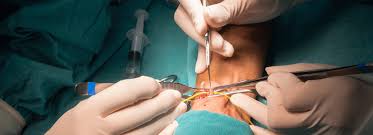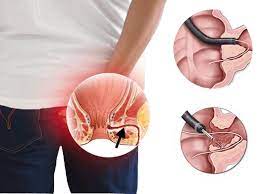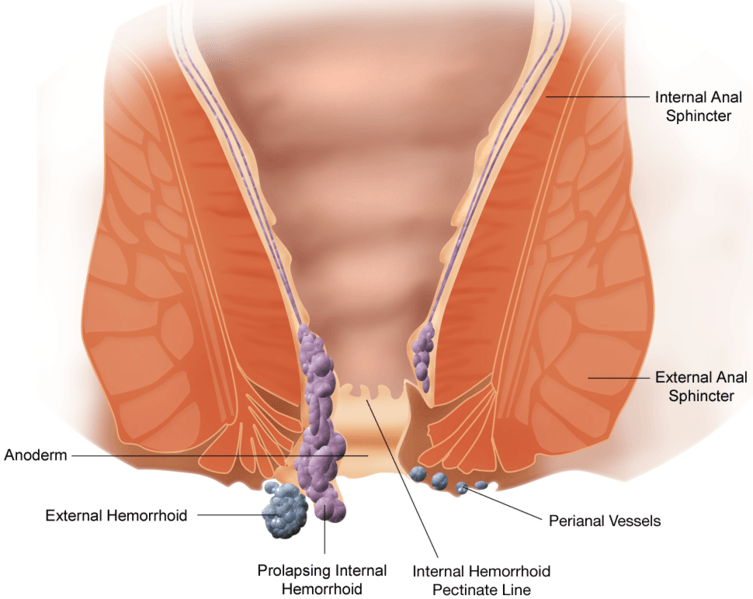No. 1 Ovarian Cyst Treatment in Delhi

Overview
Imagine this: You're going about your daily routine when suddenly, a nagging abdominal pain starts affecting your quality of life. You brush it off at first, but it persists, making you wonder if there's something more serious going on. If this sounds familiar, you might be dealing with an ovarian cyst. Ovarian cysts are fluid-filled sacs that can develop on your ovaries, and while many are harmless, they can sometimes lead to discomfort or more severe issues if left untreated. At Pelvinic, we understand the complexities of ovarian cysts and are here to guide you through every step of your treatment journey. Let’s dive into the essential information you need to make informed decisions about ovarian cyst treatment in Delhi.
What is an Ovarian Cyst and Why is Treatment Important?
An ovarian cyst is a fluid-filled sac that forms on the ovary, which is part of a woman's reproductive system. Most ovarian cysts are benign and may not cause any symptoms. However, when symptoms like pelvic pain, bloating, or changes in menstrual cycles occur, it’s crucial to seek treatment. Untreated cysts can sometimes lead to complications such as rupture or torsion, which can be painful and require immediate medical attention.
How Common are Ovarian Cysts and What Symptoms Should You Watch For?
Ovarian cysts are quite common, especially among women of childbearing age. In fact, nearly every woman will develop an ovarian cyst at some point in her life. The majority of these cysts are functional and resolve on their own. Symptoms to watch for include:
-
Persistent pelvic pain
-
Abdominal bloating or swelling
-
Irregular menstrual cycles
-
Pain during intercourse
-
Difficulty emptying the bladder completely
What are the Different Types of Ovarian Cysts and How Do They Affect Treatment Options?
Ovarian cysts come in various types, each influencing treatment decisions differently. Some common types include:
-
Functional Cysts: These are the most common and usually resolve on their own.
-
Dermoid Cysts: These contain different types of tissue, such as hair or teeth, and may require surgical intervention.
-
Endometriomas: These cysts are linked to endometriosis and often need targeted treatment.
-
Polycystic Ovaries: Associated with PCOS, these cysts often require a combination of lifestyle changes and medical treatment.
Understanding the type of cyst is vital for determining the appropriate treatment plan.
How Can You Determine the Best Treatment Approach for Ovarian Cysts in Delhi?
Choosing the best treatment for ovarian cysts depends on several factors, including the type and size of the cyst, your overall health, and your symptoms. Options typically include:
-
Watchful Waiting: For benign, asymptomatic cysts.
-
Medications: Hormonal treatments or pain relief.
-
Surgery: In cases where the cyst is large, persistent, or causing significant symptoms.
Consulting with a specialist in Delhi can help tailor the treatment plan to your specific needs.
What are the Pros and Cons of Surgical vs. Non-Surgical Treatments for Ovarian Cysts?
When considering ovarian cyst treatment, you may choose between surgical and non-surgical options. Here’s a comparison:
-
Surgical Treatment
-
Pros: Effective for large or complex cysts; can provide a definitive diagnosis.
-
Cons: Involves recovery time and potential complications; more invasive.
-
-
Non-Surgical Treatment
-
Pros: Less invasive; suitable for smaller or functional cysts.
-
Cons: May not be effective for all types of cysts; symptoms may persist.
-
Understanding these pros and cons can help you make an informed decision about your treatment approach.
What Role Does Lifestyle and Diet Play in Managing Ovarian Cysts?
Lifestyle and dietary changes can play a significant role in managing ovarian cysts. Consider these tips:
-
Healthy Diet: Incorporate plenty of fruits, vegetables, and whole grains to support hormonal balance.
-
Regular Exercise: Helps maintain a healthy weight and can reduce symptoms.
-
Stress Management: Stress can impact hormonal balance, so practices like yoga or meditation may be beneficial.
Adopting these changes can support overall well-being and potentially alleviate cyst-related symptoms.
How Can You Prepare for a Consultation About Ovarian Cyst Treatment in Delhi?
To make the most out of your consultation, consider the following tips:
-
Keep a Symptom Diary: Document your symptoms, their frequency, and severity.
-
Prepare Questions: Ask about the type of cyst, treatment options, and expected outcomes.
-
Bring Medical Records: Include any previous test results or imaging studies.
Being prepared can help ensure a productive consultation and a clear treatment plan.
Why is Dr. Meenakshi Banerjee the Best Choice for Ovarian Cyst Treatment in Delhi?
When it comes to ovarian cyst treatment in Delhi, Dr. Meenakshi Banerjee is a top choice. With over 15 years of experience in laparoscopic gynaecology, Dr. Banerjee is known for her expertise in minimally invasive procedures, including ovarian cyst surgeries. Her commitment to compassionate care and advanced techniques ensures that you receive the highest quality treatment tailored to your needs.
Conclusion
Navigating ovarian cyst treatment in Delhi can seem overwhelming, but understanding your options and working with experienced professionals like Dr. Meenakshi Banerjee at Pelvinic can make the process smoother. By seeking timely and appropriate care, you can address symptoms effectively and maintain your well-being. Remember, at Pelvinic, we are dedicated to providing compassionate and comprehensive care for all your pelvic health needs.
FAQs
1. What should I do if I suspect I have an ovarian cyst?
Ans. Consult a healthcare provider for a proper diagnosis and treatment plan. Early intervention can prevent complications.
2. Are ovarian cysts always cancerous?
Ans. No, most ovarian cysts are benign and not cancerous. However, it's important to have them evaluated to rule out any serious conditions.
3. How long does recovery take after ovarian cyst surgery?
Ans. Recovery time varies depending on the type of surgery performed. Generally, minimally invasive procedures offer quicker recovery times.
4. Can lifestyle changes prevent ovarian cysts?
Ans. While lifestyle changes can help manage symptoms and support overall health, they may not prevent cysts from forming. Regular check-ups are essential.
5. Is it possible to get pregnant after ovarian cyst surgery?
Ans. Yes, many women can conceive after surgery, especially if the cyst was treated successfully and no other fertility issues are present.
Feel free to reach out to Pelvinic for personalized care and expert treatment options for ovarian cysts in Delhi.
Pelvinic offers the No. 1 ovarian cyst treatment in Delhi with advanced care, expert doctors, and personalized treatment plans for effective and safe recovery.



